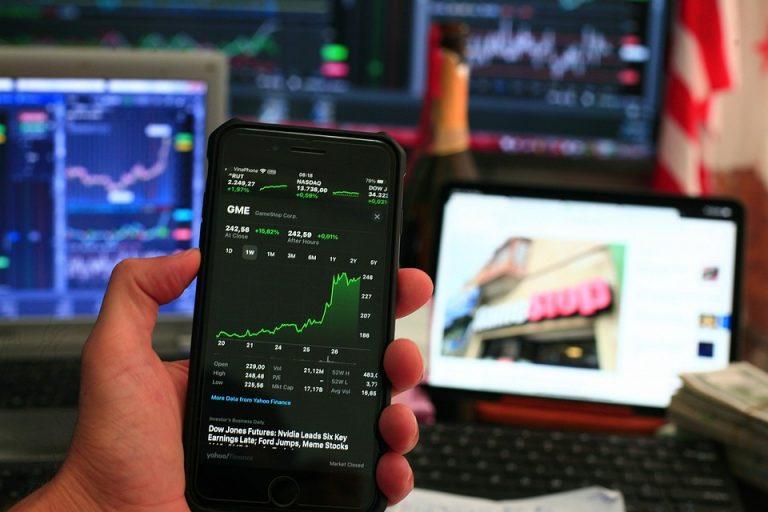Trading alerts can transform your trading strategy from mediocre to extraordinary. These game-changing notifications guide you in making informed decisions, keeping you ahead of the curve. If you’re serious about your trading journey, understanding these alerts is essential for maximizing your profits and minimizing risks.
In this article, we’ll dive deep into seven trading alerts that can change the game for you. Whether you’re a seasoned trader or just starting, these insights can elevate your trading experience. Let’s get into it!
Contents
What Are Trading Alerts?
Trading alerts are notifications that inform you about significant market conditions or changes in asset prices. They can range from price movements to news events, helping traders make quick decisions. Knowing when to buy or sell can be the difference between profit and loss.
Understanding these alerts isn’t just a nice-to-have; it’s a necessity. With the right alerts, you’re not just reacting to the market; you’re proactively managing your investments.
Why Trading Alerts Matter to You
Trading alerts matter because they provide timely information that can lead to better trading decisions. Here’s why you should pay attention:
- Speed: In trading, timing is everything. Alerts help you capitalize on opportunities right as they arise.
- Focus: With so many markets and assets to watch, alerts help you concentrate on what truly matters.
- Reduced Stress: Automated alerts take some of the pressure off, letting you trade with confidence.
The 7 Game-Changing Trading Alerts
1. Price Alerts
Price alerts notify you when an asset reaches a specific price point. This is crucial for setting entry and exit points in your trading strategy.
- How to Use: Set alerts for both buy and sell prices.
- Benefits: You can react quickly to market changes without constantly monitoring your assets.
2. Volume Alerts
Volume alerts signal when there’s a significant change in trading volume. High volume often precedes price movements, making these alerts vital.
- Why They Matter: A spike in volume can indicate strong interest or a potential reversal.
- Pro Tip: Combine volume alerts with price alerts for maximum effectiveness.
3. News Alerts
News alerts keep you informed about significant news events affecting the market. News can sway prices dramatically, so these alerts are essential.
- Stay Updated: Use platforms that provide real-time news updates.
- Understand the Impact: Not all news is created equal. Learn which types are most likely to affect your trades.
4. Technical Indicator Alerts
These alerts notify you when a technical indicator meets specific criteria, signaling potential trading opportunities.
- Common Indicators: Moving averages, RSI, and MACD are popular choices.
- Why Use Them: They add a layer of analysis to your trading, helping you make informed decisions based on market trends.
5. Economic Calendar Alerts
Economic indicators can dramatically impact market conditions. Economic calendar alerts keep you updated on upcoming reports, such as employment data or GDP figures.
- Be Prepared: Knowing when reports are released allows you to position your trades effectively.
- Stay Ahead: Market reactions to these reports can be swift and severe.
6. Social Sentiment Alerts
In today’s digital age, social media sentiment can drive market movements. Social sentiment alerts track discussions and trends on platforms like Twitter or Reddit.
- Why They’re Important: Understanding what the community is saying can give you insight into market psychology.
- Use Tools: Utilize sentiment analysis tools to gauge market mood.
7. Portfolio Alerts
Portfolio alerts provide insights into your overall portfolio performance. They can signal when it’s time to rebalance or take profits.
- Why You Need Them: Keeping an eye on your entire portfolio helps you make better long-term decisions.
- Automate: Set alerts for specific performance thresholds, like a percentage gain or loss.
How to Set Up Your Trading Alerts
Setting up your trading alerts is easier than you might think. Here’s a step-by-step guide:
- Choose a Trading Platform: Select a reputable trading platform that offers customizable alerts.
- Identify Key Metrics: Decide what alerts are most relevant to your strategy.
- Customize Your Alerts: Set specific parameters for each alert to suit your trading style.
- Stay Informed: Make sure your contact details are up to date to receive timely notifications.
The Impact of Trading Alerts on Your Strategy
Incorporating trading alerts into your strategy can lead to significant improvements in both your performance and emotional well-being.
Emotional Benefits
- Reduced Anxiety: Knowing you’ll be alerted to key changes allows you to trade with less stress.
- Increased Confidence: With alerts guiding your decisions, you can make trades without second-guessing yourself.
Financial Benefits
- Higher Returns: Quick reactions to alerts can lead to more profitable trades.
- Lower Risks: Alerts can help you exit positions before significant losses occur.
Best Practices for Using Trading Alerts
- Don’t Overwhelm Yourself: Too many alerts can create noise. Focus on the most critical ones.
- Regularly Review and Adjust: As your trading style evolves, so should your alerts.
- Stay Educated: Keep learning about new types of alerts and strategies to enhance your trading.
Real-World Applications of Trading Alerts
Consider Sarah, a busy professional who found it challenging to keep up with market movements. By setting up price and news alerts, she was able to make informed decisions without sacrificing her day job.
Her story illustrates how effective trading alerts can empower anyone to take control of their financial future, regardless of time constraints.
Conclusion
Incorporating trading alerts into your strategy can be a game-changer. They empower you to make timely and informed trading decisions, leading to better financial outcomes.
Bottom Line
Trading alerts are not just helpful; they are essential for anyone serious about trading. Take the time to set them up and watch how they transform your trading experience.
Ready to elevate your trading game? Start implementing these alerts today and take control of your financial future!
FAQs
What are the best platforms for trading alerts?
Some popular platforms include TradingView, MetaTrader, and Thinkorswim, all of which offer customizable alert features.
Can I set multiple alerts for the same asset?
Yes, most platforms allow you to set multiple alerts for various conditions on the same asset.
How often should I check my alerts?
It’s best to check them regularly but avoid becoming overly reliant. Trust the alerts and take action when needed.
By leveraging these seven game-changing trading alerts, you can transform your trading strategy and make decisions with confidence. Don’t let opportunities pass you by—stay informed, stay alert, and trade wisely!








